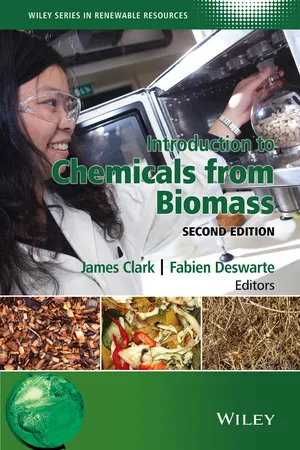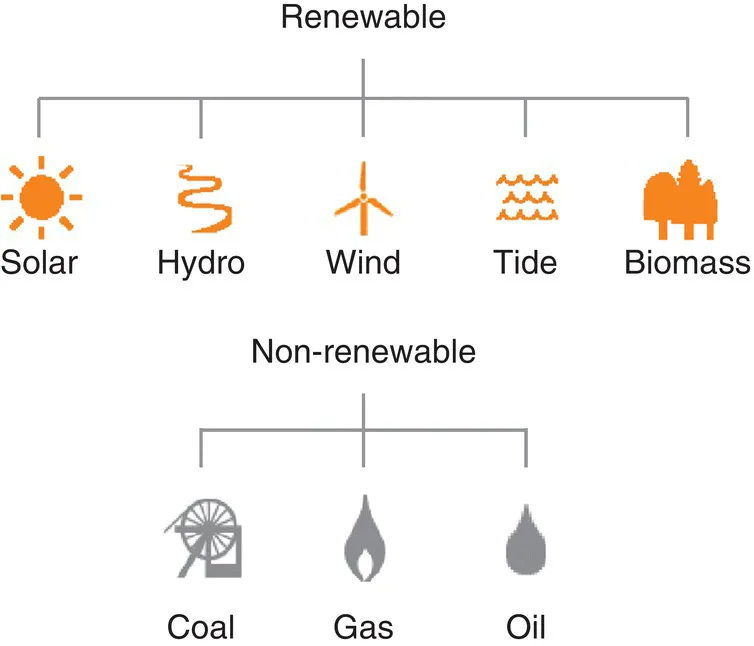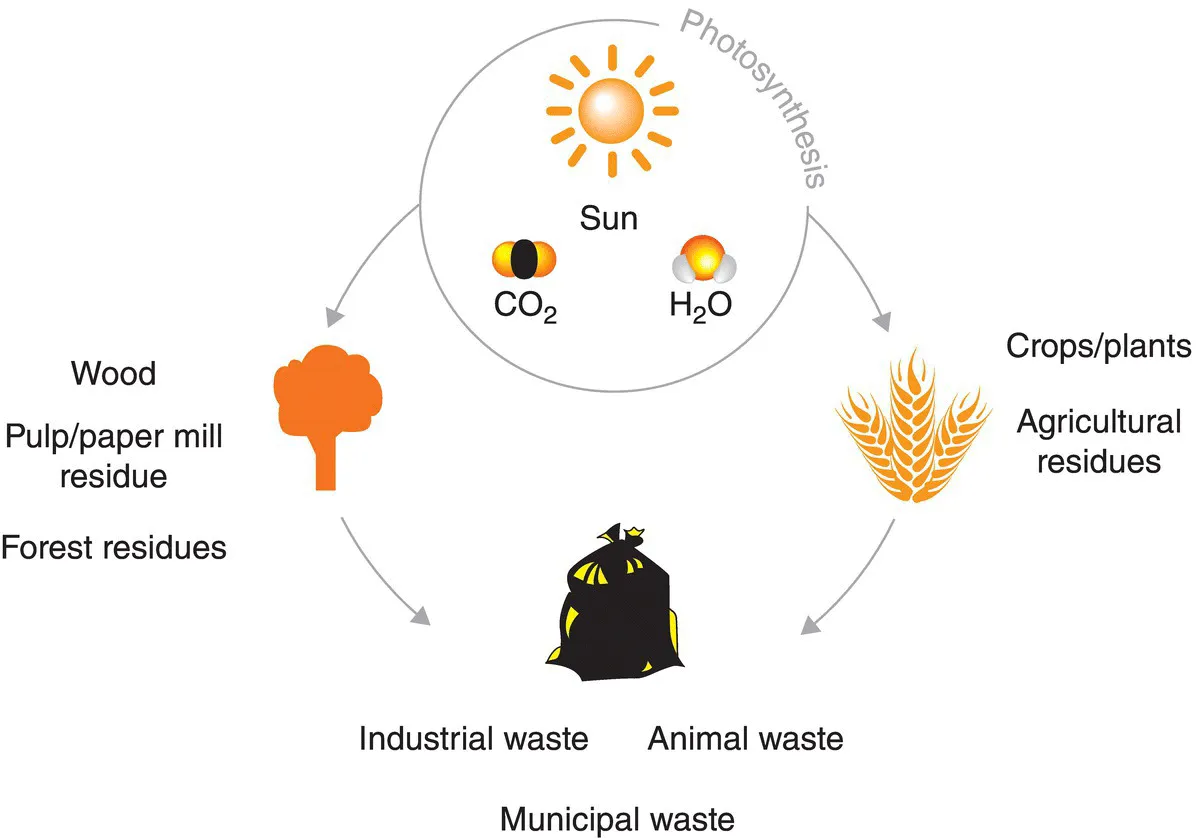
Introduction to Chemicals from Biomass
- English
- ePUB (mobile friendly)
- Available on iOS & Android
Introduction to Chemicals from Biomass
About this book
Introduction to Chemicals from Biomass, Second Edition presents an overview of the use of biorenewable resources in the 21st century for the manufacture of chemical products, materials and energy. The book demonstrates that biomass is essentially a rich mixture of chemicals and materials and, as such, has a tremendous potential as feedstock for making a wide range of chemicals and materials with applications in industries from pharmaceuticals to furniture.
Completely revised and updated to reflect recent developments, this new edition begins with an introduction to the biorefinery concept, followed by chapters addressing the various types of available biomass feedstocks, including waste, and the different pre-treatment and processing technologies being developed to turn these feedstocks into platform chemicals, polymers, materials and energy. The book concludes with a discussion on the policies and strategies being put in place for delivering the so-called Bioeconomy.
Introduction to Chemicals from Biomass is a valuable resource for academics, industrial scientists and policy-makers working in the areas of industrial biotechnology, biorenewables, chemical engineering, fine and bulk chemical production, agriculture technologies, plant science, and energy and power generation.
We need to reduce our dependence on fossil resources and increasingly derive all the chemicals we take for granted and use in our daily life from biomass – and we must make sure that we do this using green chemistry and sustainable technologies!
For more information on the Wiley Series in Renewable Resources, visit www.wiley.com/go/rrs
Topics covered include:
• The biorefinery concept
• Biomass feedstocks
• Pre-treatment technologies
• Platform molecules from renewable resources
• Polymers from bio-based monomers
• Biomaterials
• Bio-based energy production
Praise for the 1st edition:
"Drawing on the expertise of the authors the book involves a degree of plant biology and chemical engineering, which illustrates the multidisciplinary nature of the topic beautifully" - Chemistry World
Frequently asked questions
- Essential is ideal for learners and professionals who enjoy exploring a wide range of subjects. Access the Essential Library with 800,000+ trusted titles and best-sellers across business, personal growth, and the humanities. Includes unlimited reading time and Standard Read Aloud voice.
- Complete: Perfect for advanced learners and researchers needing full, unrestricted access. Unlock 1.4M+ books across hundreds of subjects, including academic and specialized titles. The Complete Plan also includes advanced features like Premium Read Aloud and Research Assistant.
Please note we cannot support devices running on iOS 13 and Android 7 or earlier. Learn more about using the app.
Information
1
The Biorefinery Concept: An Integrated Approach
1.1 Sustainability for the Twenty-First Century
- dematerialisation: use less resources per person and hence produce less waste; and
- transmaterialisation: use different materials and have a different attitude to ‘waste’.
1.2 Renewable Resources: Nature and Availability


| Biomass potential (MTonnes oil equivalent) | |||
| 2010 | 2020 | 2030 | |
| Organic wastes | 100 | 100 | 102 |
| Energy crops | 43–46 | 76–94 | 102–142 |
| Forest products | 43 | 39–45 | 39–72 |
| Total | 186 | 215–239 | 243–316 |
1.3 The Challenge of Waste
Table of contents
- Cover
- Wiley Series in Renewable Resources
- Title page
- Copyright page
- List of Contributors
- Series page
- Preface
- 1 The Biorefinery Concept
- 2 Biomass as a Feedstock
- 3 Pretreatment and Thermochemical and Biological Processing of Biomass
- 4 Platform Molecules
- 5 Monomers and Resulting Polymers from Biomass
- 6 Bio-Based Materials
- 7 Biomass-Based Energy Production
- 8 Policies and Strategies for Delivering a Sustainable Bioeconomy: A European Perspective
- Index
- End User License Agreement